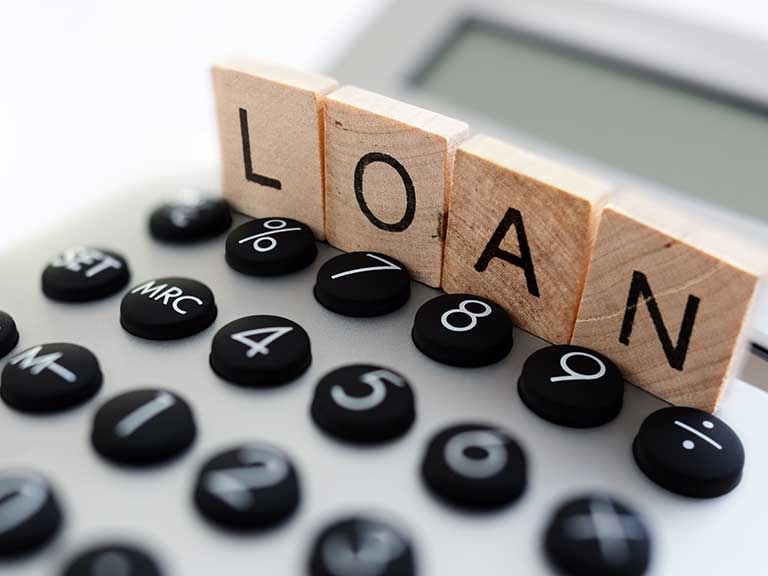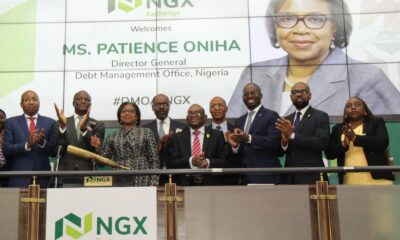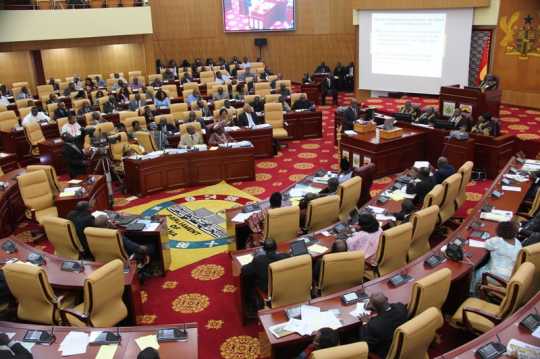Nigeria’s liabilities to the World Bank and the African Development Bank rose from $7.14 billion to $14.25 billion between June 30, 2015, and March 31, 2021, data obtained from the Debt Management Office have shown.
This means that the commitment of the banks to the country rose by $7.11 billion within the period under review. This represents an increase of 98.48 percent.
As of June 30, 2015, the Federal Government had borrowed a total sum of $6.19 billion from the World Bank.
A breakdown of the group’s portfolio in the country shows that a greater part of the loans was obtained from the International Development Association, an arm of the World Bank that specialises in giving concessional loans to poor and fragile countries.
The IDA commitment to Nigeria amounted to $6.09 billion. Another member of the group, the International Fund for Agricultural Development, had a commitment of $94.80 million in the country.
Similarly, at the same time, the AfDB commitment to the country stood at $946.52 million, comprising loans from various internal bodies such as the African Development Bank ($350 million) and African Development Fund ($596.53 million).
By March 31, 2021, the Federal Government’s debt to the World Bank had risen to $11.51 billion, reflecting a $5.32 billion or 86 percent increase.
This debt portfolio included loans of $11.10 billion and $410.23 million from the International Development Association and International Bank for Reconstruction and Development respectively.
With a commitment of $11.51 billion, the World Bank is responsible for 35.02 percent of Nigeria’s foreign portfolio of $32.86 billion as of March 31.
At the same period, the Federal Government acquired $1.59 billion from the AfDB, $0.21 million from Africa Growing Together Fund and $942.51 million from ADF.
This brought the AfDB’s commitment to the country to $2.74 billion, representing 8.3 percent of the country’s total external debt. Most of the loans from the World Bank and the AfDB were tied to a programme or infrastructure project.
On December 14 2020, the World Bank approved a $1.5bn loan to Nigeria, earmarked for two projects: Nigeria COVID-19 Action Recovery and Economic Stimulus Programme and The State Fiscal Transparency, Accountability, and Sustainability Programme.
On June 27, 2018, the bank approved a loan of $775 million for the following projects: Fiscal Governance and Institutions Project, Nigeria Erosion and Watershed Management Project – Additional Financing, Nigeria Polio Eradication Support Project Additional Financing, Nigeria Electrification Project and the State Fiscal Transparency, Accountability and Sustainability scheme.
On March 23, 2017, the bank approved a $200 million credit for the implementation of the Agro-Processing, Agricultural Productivity Enhancement and Livelihood Improvement Support Project and Nigeria, while a $150m credit was offered for Mineral Sector Support for Economic Diversification Project on April 14 same year.
On June 7, 2016, the bank approved a $1.1 billion credit as additional finance to fund the following projects: State Education Program Investment Project, Community and Social Development, Nigeria Youth Employment and Social Support, State Health Investment Project, Third National Fadama Development Project, NG-Polio Eradication Support Project and the National Social Safety Nets Project.
One of the loans approved by the Board of Directors of the AfDB to the Nigerian government is a financing package comprising $150 million ADB loan, $100 million ADF loan and the £5m RWSSI Grant Facility, to finance the Inclusive Basic Service Delivery and Livelihood Empowerment Integrated Programme on December 14, 2016.
Also in 2016 but on December 16, another loan was approved, which was a financing package of $100 million, comprising an $80 million loan and $20 million equity for the rehabilitation of the Kainji and Jebba hydro plants.
On December 3, 2018, the Board of Directors of the AfDB approved a $150 million sovereign loan to finance the Nigeria Electrification Project.
Another loan was approved on April 24, 2019, which was a $70 million loan for a road project in Nigeria’s Southeastern Ebonyi State with the bank providing $40m and its co-financier, AGTF, contributing $30 million.
On June 5, 2020, a $288.5 million loan was approved to help Nigeria tackle the COVID-19 pandemic and mitigate its impact on people and businesses.
As of March 31 2021, 54.26 percent of the country’s external debt portfolio belonged to multilateral organisations including the International Monetary Fund ($3.48 billion), Arab Bank for Economic Development in Africa ($5.88 million), European Development Fund ($51.33 million) and Islamic Development Bank ($29.72 million) and $223.28 million from International Fund for Agricultural Development.
Bilateral debts make up $4.18 billion or 12.73 percent of the country’s external debt exposure.
Nigeria’s is currently indebted to the following bilateral agencies: Export-Import Bank of China, with a portfolio of $3.40 billion; the Exim Bank of India, with a portfolio of $34.95 million; the Agence Française de Développement, with a portfolio of $486.6 million; the Japan International Cooperation Agency, with a portfolio of $74.6 million; and Germany, with a portfolio of $183.7 million.
Commercial loans now comprise 32.47 percent of the country’s external debt exposure, with a value of $10.67 billion.
These loans include $10.36 billion Eurobonds, and $300 billion Diaspora Bond, through which the Federal Government borrowed from Nigerians living abroad.
On the other hand, as of June 30 2015, Eurobond was the only commercial loan available and it constituted 14.54 percent of the country’s external debt exposure with a value of $1.5 billion.
Meanwhile, multilateral sources constituted 70.11 per cent of the country’s external debt exposure at the stated period while bilateral sources made up 15.35 percent of the country’s total foreign debt exposure of $10.32 billion.
Financial experts have continually condemned the huge borrowings of the Federal Government, noting that the country’s rapidly growing debt profile is detrimental to the economy.
The President of the AfDB, Dr Akinwumi Adesina, had during the virtual launch of the African Economic Outlook 2021 described debts owed by African countries including Nigeria as unsustainable.
Adesina had said, “The issue of debt is so fundamental because it’s like you are running up a hill but you have a bag full of sand on your back; you can’t go far. The amount of debt that we have is not sustainable.
“The amount of debt that we have right now is about 70 to 75 percent of the Gross Domestic Product. It used to be sustainable, but what is even more alarming is the structure of the debt, where the debt right now is largely in the hands of commercial creditors, almost $337 billion in terms of high creditors and those that are the private creditors without any type of securitisation for it.”

 Naira4 weeks ago
Naira4 weeks ago
 News4 weeks ago
News4 weeks ago
 Naira4 weeks ago
Naira4 weeks ago
 Travel3 weeks ago
Travel3 weeks ago
 Naira3 weeks ago
Naira3 weeks ago
 Jobs4 weeks ago
Jobs4 weeks ago
 Naira3 weeks ago
Naira3 weeks ago
 Investment4 weeks ago
Investment4 weeks ago




























